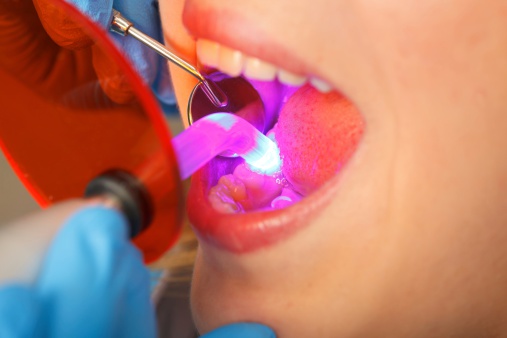South Ogden
Bonding Can Last Longer if You Care For It Properly From Day One
Bonding is a conservative and affordable cosmetic restoration. While this type of restoration does not last as long as some more expensive restorations, such as veneers, it certainly will support better oral health and an enhanced appearance. You just need to follow a routine of conscientious oral care.

What Is Bonding?
Bonding is a process used by prosthodontists to restore chipped, broken, or capped teeth, or to fill cavities. While this dental procedure is not as durable as porcelain veneers, it still can be used to rejuvenate the appearance and color of discolored or stained teeth. We consider bonding as an interim step for improving a patient’s smile until he or she can afford a more definitive and advanced restoration, such as veneers or caps.
How to Take Care of Bonded Teeth
To maintain bonded teeth, it is important that you treat them like your natural teeth and brush and floss them at least twice a day. Use a tongue scraper to remove the biofilm that holds the plaque and bacteria that causes bad breath and tooth decay. It is important, as well, to eat foods that will not stain the bonding material. Therefore, avoid darker foods, such as chocolate, and if you drink coffee, add milk to neutralize the color. If you take the same care of bonded teeth as your natural teeth, you will have fewer oral health problems and will maintain a whiter smile.
Would you like to know more about bonding to repair a chipped or cracked tooth? Maybe you are interested in this restoration to seal some teeth that are too sensitive. If so, give our team a call to learn more about bonding and its benefits. We can reshape teeth, increase tooth strength, and improve an uneven smile using a bonding material. See for yourself how this material can improve your smile and dental functionality.
